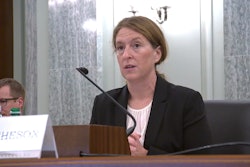The Biden administration is seeking to formalize the buildout of the budding U.S. electric vehicle infrastructure, which to-date lacks standardization.
The U.S. Department of Transportation’s Federal Highway Administration (FHWA) Thursday announced a Notice of Proposed Rulemaking on proposed minimum standards and requirements for projects funded under the National Electric Vehicle Infrastructure Formula Program. These minimum standards will help ensure a national EV charging network is user-friendly, reliable, and accessible to all Americans (regardless of which OEM EV they drive), and interoperable between different charging companies, with similar payment systems, pricing information, charging speeds and more.
The proposed rule would establish the groundwork for states to build federally-funded charging station projects across a national EV charging network, and complements the NEVI Formula Program Guidance, which encouraged EV chargers be spaced a maximum distance of 50 miles apart along designated alternate fuel corridors by requiring minimum standards for the development of each station.
President Biden’s Bipartisan Infrastructure Law unlocked nearly $5 billion over the next five years under for states to build out a national EV charging network.
Transportation Secretary Pete Buttigieg said these new ground rules will help create a network of EV chargers across the country that are convenient, affordable, reliable and accessible, adding, "to support the transition to electric vehicles, we must build a national charging network that makes finding a charge as easy as filling up at a gas station."
Charging stations would be required to have minimum number and type of chargers capable of supporting fast charging. Additionally, FHWA proposed rules would require consistency regarding the installation, operation and maintenance of NEVI Formula Program projects to provide the traveling public with a consistent charging experience. The proposed rule would further specify the required minimum density of provided chargers, payment methods and requirements for customer support services.
Proposed rules will set strong certification standards for the workers installing, operating and maintaining electric vehicle chargers and will also support workforce development and on-the-job training.
Other proposed requirements would help create a seamless national network of EV charging infrastructure that could communicate and operate on the same software platforms across multiple states; address traffic control devices and on-premise signage; data submittal requirements to help create a public EV charging database; and network connectivity requirements to allow for secure remote monitoring, diagnostics, control and updates.
Additionally, the FHWA proposes requirements that would standardize communication to consumers of price and availability of each charging station to help consumers make informed decisions about trip planning and when and where to charge EVs.
The proposed rule is expected to publish in the Federal Register next week.












